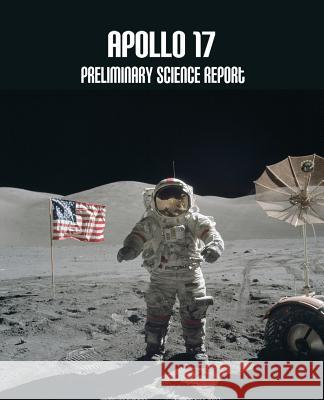Apollo 17: Preliminary Science Report » książka
Apollo 17: Preliminary Science Report
ISBN-13: 9781502728876 / Angielski / Miękka / 2014 / 700 str.
The character of the Apollo 17 mission to Taurus-Littrow was such that it invited superlatives. By almost all measures, it was an immensely successful voyage of exploration: the greatest harvest of new scientific data, the most kilometers traveled on the surface of the Moon, the largest number of scientific experiments performed-both in real time, by a scientist on the surface, and by automatic instrumentation installed and left behind-the longest time spent on and around the Moon, and the greatest amount of lunar samples returned for study in laboratories all over the world. But numerical measures like these, pleasing though they may be to the thousands of us who had some connection with this mission, do not seem an adequate characterization of this sixth and last of the Apollo series of manned lunar landings. We cannot now be sure how history will assess this extraordinary enterprise. It may be that, from the perspective of decades, the Apollo Program will stand out as the most singular achievement to date in the history of man's scientific and engineering endeavor. From this perspective, seen without hubris, it may be seen that all of us will be remembered for having lived at the time of Apollo. It may be that, in days to come, Apollo will be perceived as a threshold for mankind from the planet Earth. As the splashdown and recovery of the Apollo 17 crew marked the end of the Apollo flight program, this final volume marks the end of the Apollo Preliminary Science Reports. From every aspect, Apollo 17 was indeed a fitting capstone to the Apollo missions. Its awesome and magnificent midnight launch, its flawless operation, its 72-hr lunar stay time, its deployment of scientific instrumentation, its return of the richest collection of lunar materials from any lunar site, its orbital science coverage, and its glorious splashdown in the Pacific Ocean surely marked Apollo 17 as the mission most impressively exemplifying the Apollo Program.
Zawartość książki może nie spełniać oczekiwań – reklamacje nie obejmują treści, która mogła nie być redakcyjnie ani merytorycznie opracowana.











